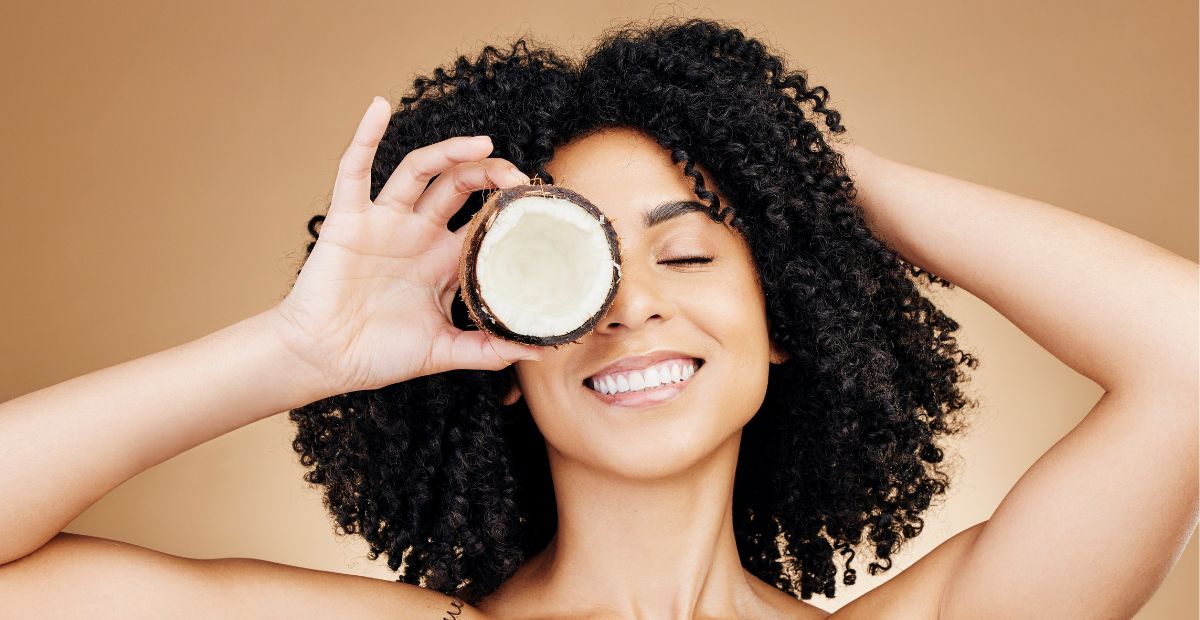3 Pro Tips to Minimize Your Enlarged Pores
Onskin Content Team
Your guides through the skincare chaos

Enlarged pores are a common concern, especially nowadays when smoothed untextured faces are becoming the dominant look online. If perfect faces (or rather AI-generated is a more accurate term) on social media make you feel inadequate, this subreddit can be a nice antidote. But, IG and TikTok messing with our body image aside, today we want to talk about enlarged pores, what causes them, and various ways to minimize pores that actually work.
What Causes Enlarged Pores
Pore size mostly comes down to genetics. But there are factors that can make them bigger and more noticeable. The good news is
a) there aren’t too many of those factors, and
b) you can tackle each one head-on and win. Yup, it’s true! Let’s dive into it.
Excessive Sebum
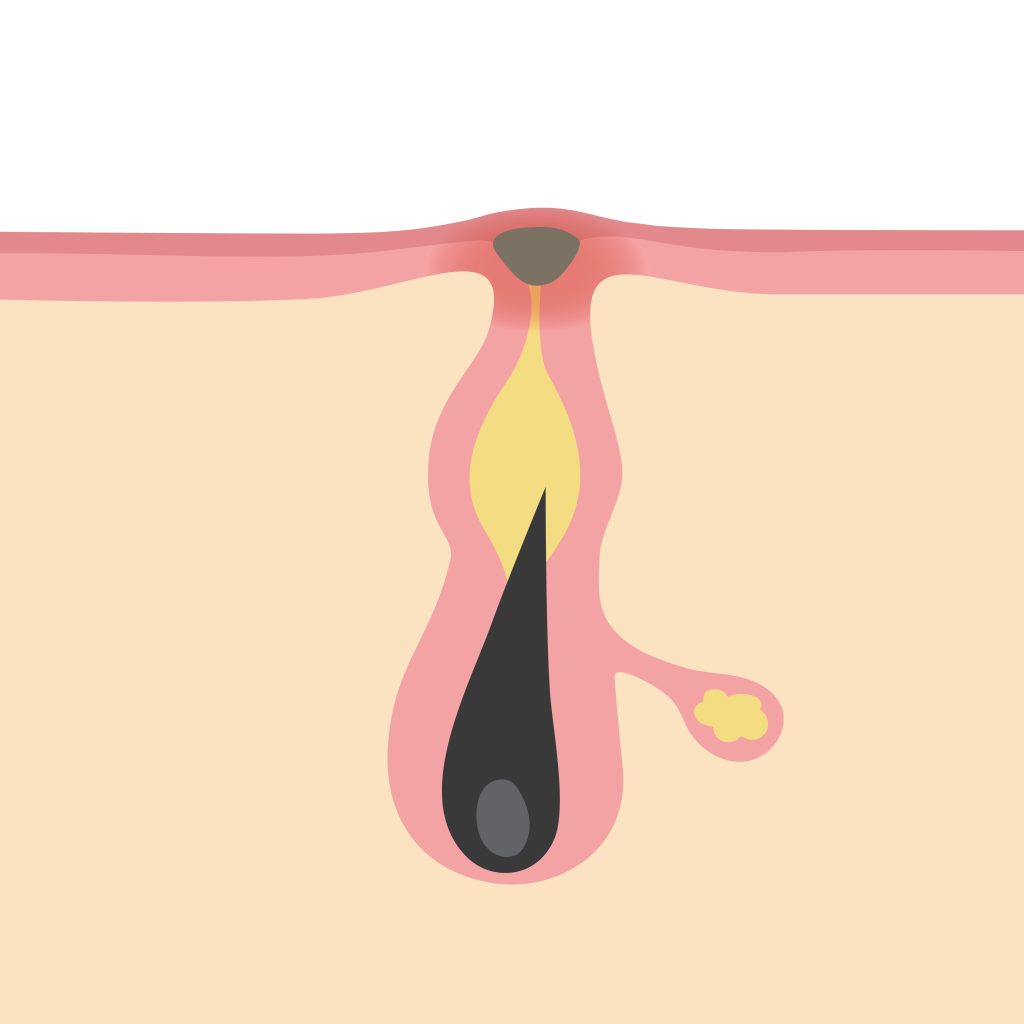
Things like hormonal changes, genetics, stress, diet, and more can cause our skin to produce an excessive amount of sebum. Excess sebum traps dirt and dead skin cells inside pores which causes them to clog, stretch, and inflame. If the blockage doesn’t clear out, it builds up to the surface and gets oxidized turning dark and forming a blackhead, aka open comedone.
Age-related Loss of Elasticity
If we look at the anatomy of the pore, we’ll see that its walls are held together by the dermis. As we age, the amount of collagen in the dermis goes down causing it to become less firm and elastic. So naturally, as the dermis grows less elastic, pores can sort of stretch and sag.
Sun Damage
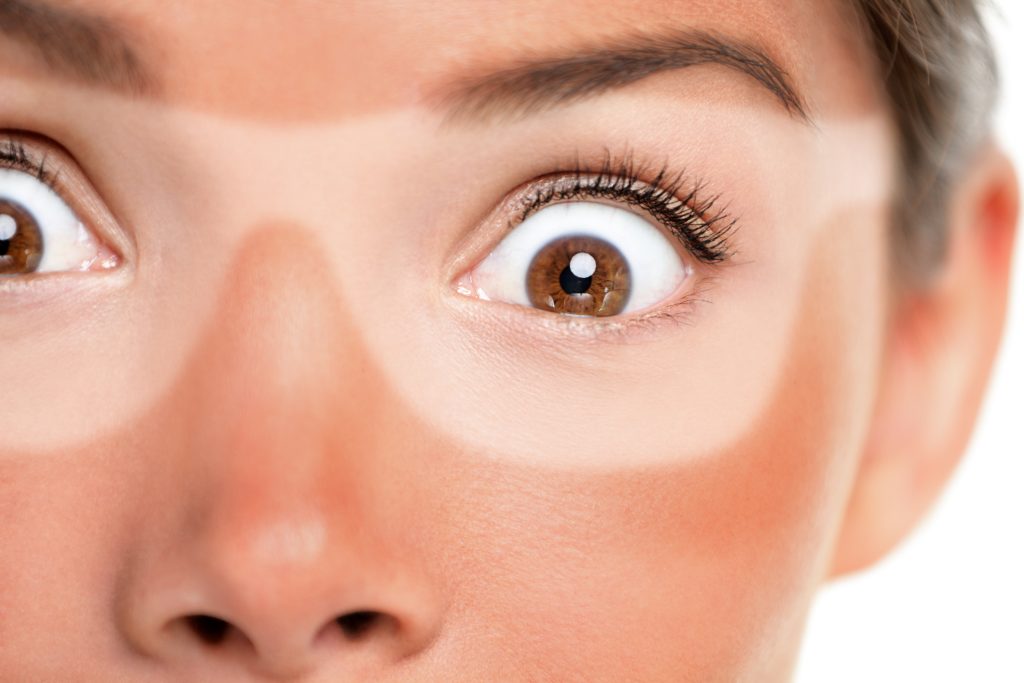
This one has the same mechanism except it’s not age-related. Multiple studies show that sun-damaged skin contains 20-30% less collagen compared to healthy skin, which leads to enlarged pores among other problems.
Comedogenic Ingredients
Some cosmetic ingredients can clog pores. The funny thing is that most people know this but very few actually know what ingredients are comedogenic and how to check their products.

The easiest way is to have an ingredient scanner like OnSkin always on hand—you can take a picture of a product and the app will warn you if there are comedogens on the ingredients list.
How to Minimize Pores
Now that we’ve looked at what causes enlarged pores, let’s move on to how to minimize pores. We’ll break down the treatments into three categories for convenience: systemic, topical, and energy-based, or to put it simply, pills, creams, and machines.
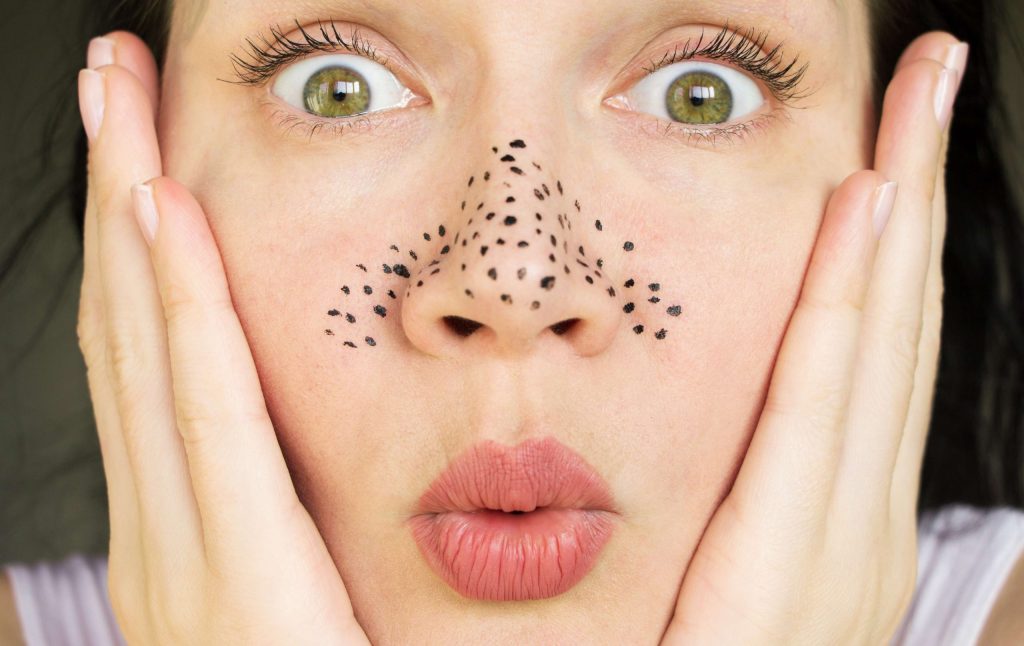
Pills (Systemic Treatment)
We won’t give out recommendations, as you would need a prescription and a full assessment from a healthcare professional anyway if you go for systemic treatment. But just so you know, there are options that have worked wonders for thousands of people. So, here’s the scoop on a few meds that could make a huge difference. Please note that all these are a no-go for pregnant or breastfeeding women.
Accutane (Isotretinoin)
Isotretinoin, commonly known as Accutane, is a powerful systemic retinoid that has revolutionized acne treatment. It reduces sebum production, normalizes skin cell shedding, and diminishes inflammation and acne-causing bacteria. Whether you suffer from acne or struggle with excess oil, enlarged pores, and blackheads, isotretinoin can significantly improve your skin.
Spironolactone
Spironolactone, commonly prescribed for high blood pressure, is frequently used off-label by dermatologists to treat hormonal acne in women. Some women have increased sensitivity or higher levels of androgens which can result in skin and hair issues. Spironolactone blocks the effects of androgens on the skin and hair follicles and can help minimize pores through decreased sebum production.
Oral Contraceptives
Birth control pills proved to improve skin quality and minimize pores in women with hormonal issues. By blocking the effects of androgens on the skin and stabilizing hormone levels, they decrease sebaceous glands activity and ultimately the amount of sebum. This can help minimize pores and clear out acne. It’s worth keeping in mind that the effect will last as long as the medication with things getting to how they were pretty soon after going off the pill.
Creams (Topical Treatment for Enlarged Pores)
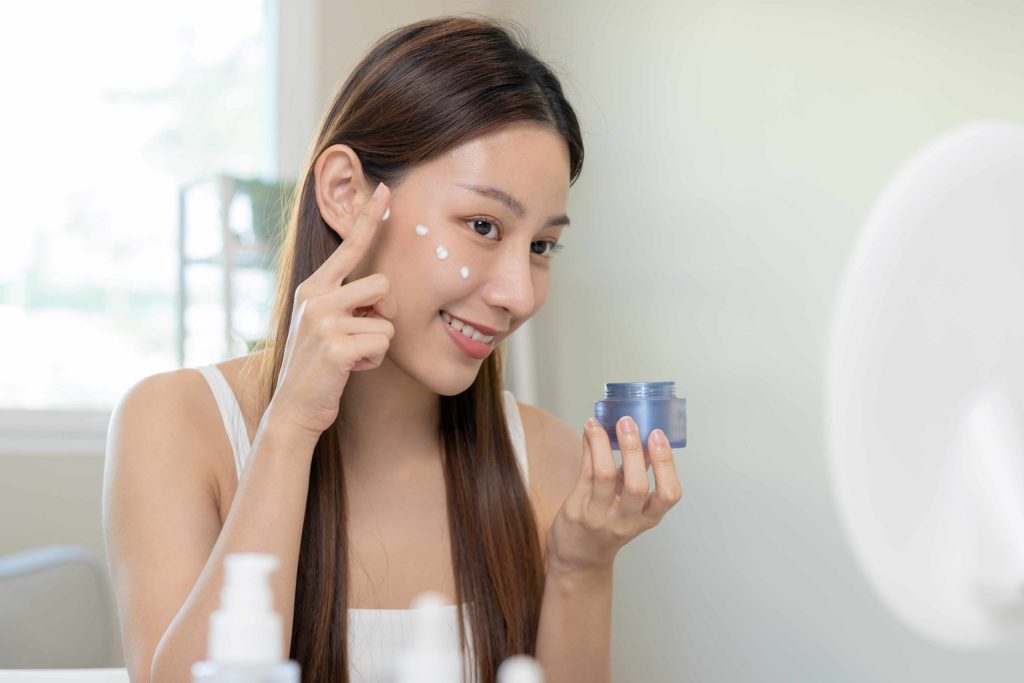
Topical treatment might be an easier and safer option compared to systemic. The good news is some topicals proved to be just as effective (although you might need a prescription for the most potent ones too).
Retinoids
Retinoids are by far the most effective ingredients that help reduce sebum production and minimize pores—we have a separate post if you’re interested in how they work and what else they can help with (spoiler alert: they can help with boatloads of issues). Unfortunately, topical retinoids have to be avoided just like systemic ones if you’re pregnant or breastfeeding.
Niacinamide
Niacinamide is another miracle worker in skincare that helps minimize pores through several different mechanisms.
- Repairs and maintains the skin barrier
- Balances out sebum production
- Mitigates sun damage to the skin
- Reduces inflammation
Azelaic Acid
Azelaic acid is a powerful and delightful ingredient. Not only is it one that naturally occurs in the skin, but it’s also super well tolerated, not photosensitive, safe for pregnant or nursing mothers, and goes well with other potent ingredients such as retinoids. It does an insane number of things but as far as enlarged pores go, it can minimize pores by reducing sebum production and keratinization.
Machines (Energy-Based Treatment for Enlarged Pores)
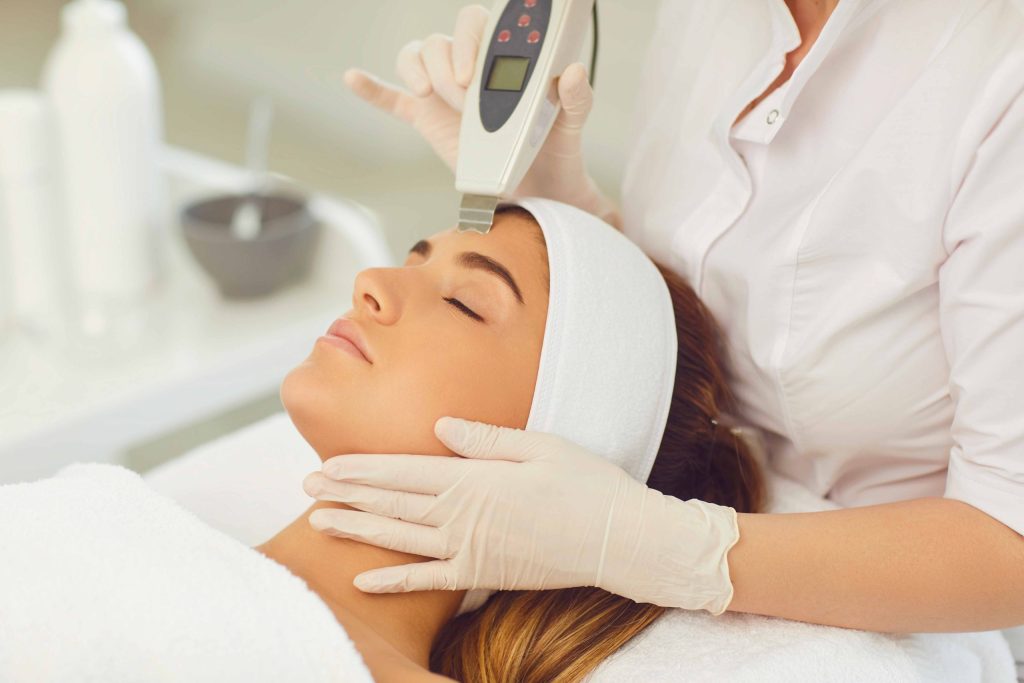
Energy-based aesthetic technology (i.e., lasers, radiofrequency, ultrasound, and intense pulsed light devices) has been evolving in bounds and leaps. We now have more technology that’s insanely effective and safe than anyone would have believed possible only ten years ago. So yeah, the future is now and there’s no reason not to take advantage of it!
There’s a huge variety of energy-based treatment methods. Still, they all essentially come down to the same thing: an increase in collagen and elastin production, meaning this will minimize pores among other benefits. Energy-based techniques can of course help with a myriad of other problems, so there’s something for everyone! If you have some disposable income, don’t hesitate to consult a specialist who will help you choose the perfect one for you.
- Collagen alterations in chronically sun-damaged human skin. (1993). https://onlinelibrary.wiley.com/doi/abs/10.1111/j.1751-1097.1993.tb04981.x
FAQ
-
Where do I start with OnSkin?
Download the app and think of a product you’d like to know more about. Then, go to the main screen and choose how you’d like to get the info —by manually looking it up in the search bar, by scanning its barcode, or by simply taking a picture of the packaging. Once you’ve done any of these, you can see how safe the product is and if it suits your skin or hair (if this analysis is available).
-
What is Safety Rating, and how is it calculated?
In OnSkin, we base product rates on ingredients. Each is closely studied by our medical team and then evaluated. This way, each product gets a score from 0 to 100, with 100 as the safest level.
Safety Levels
- Excellent (76–100)
- Good (51–75)
- Not great (26–50)
- Bad (0–25)
These scores are backed by the latest scientific studies. You can find links to the resources we’ve used on each ingredient page. To assess the safety of product ingredients, we evaluate them according to the following parameters/criteria
- Endocrine disruption risk / Reproductive toxicity
Indicates the probability of mimicking, blocking, or interfering with the body hormones.
- Сarcinogenicity
Measures the potential risk of inducing cancer.
- Allergy risk
Estimates the probability of an allergic reaction.
- High concentration alert
Determines the risk of being unsafe in certain amounts.
-
What is Skin Match?
Based on the info you input about your skin type, age, skin care goal, and other “settings,” OnSkin checks how well a product is tailored to your unique skin needs — it’s basically like a dermatologist helping you find the right products, minus the fees and the long wait. The product you’re checking might be labeled as It’s a match!, Hit-or-miss, or Not a match for you. The app also detects ingredient groups such as Anti-acne, Anti-inflammatory, Moisturizes, May be drying, Comedogenic, and others — by tapping one, you see exactly what ingredients from this or that group are in the product.
-
I seem to have a problem with using the app. Who should I contact?
Please reach out to us at [email protected], and we’ll carefully look into your issue. Your ideas for improving the app are also very welcome!
-
Do you have an Android version?
Not yet! Hey Android users, we hear you, and we're thinking about making an Android version, but we haven't started the development yet.
Tracker Sent!
It’s on the way to your inbox.



